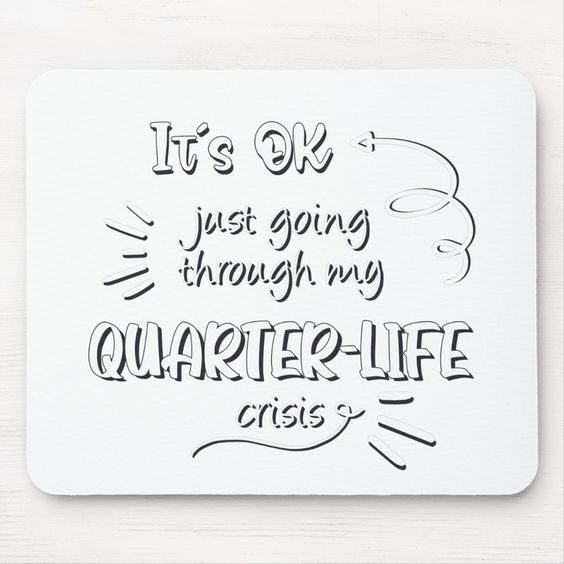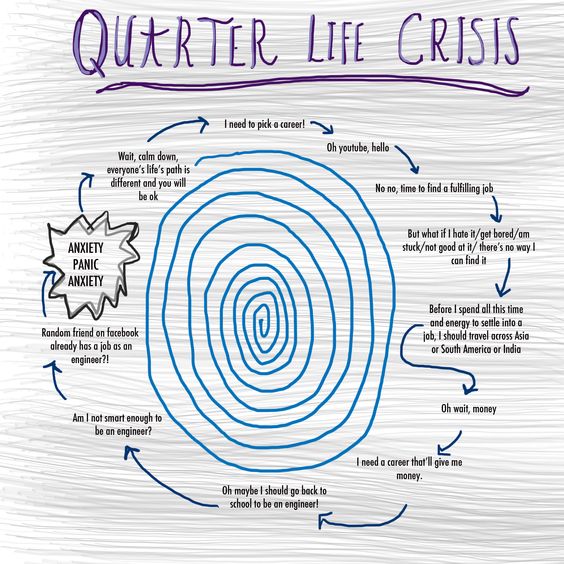Adulting 101
The Only 5 Easy Steps You’ll Need To Communicate Anger Nonviolently, Saving Your Relationships
Published
11 months agoon
By
Eric Kamau
Do You Ever Feel Like Your Anger Is A Live Grenade?
Just waiting for the right moment to go off when someone says the wrong thing?
We’ve all been there—your friend throws shade on your perfume, your parents push all the wrong buttons, or your boyfriend never notices the new clothes you keep buying (“I’m I not attractive anymore? He’s definitely seeing other girls.”)
The frustration builds, and you’re ready to explode before you know it. But what if there was a way to channel that anger into something positive without letting it blow up in your face?
Anger is a powerful emotion, and while it often gets a bad rap, it’s not inherently wrong. The real challenge lies in expressing it without causing harm—to yourself or others.
Let’s dig into some strategies for turning those heated moments into opportunities for growth and connection.

Step 1: Pause Before You React
You’re sitting in a meeting, and your coworker just took credit for your idea—again. Your first instinct might be to snap back, defend your hard work, or maybe even roll your eyes.
Instead of reacting impulsively, take a moment to breathe. This pause isn’t about bottling up your anger; it’s about giving yourself space to decide how to respond.
Imagine your anger as a tiny, overly dramatic character that needs to be managed, not unleashed.
Step 2: Identify What’s Really Going On
Anger doesn’t just pop up out of nowhere; it’s usually a signal that something deeper is at play. It could be a need for respect, acknowledgment, or simply understanding.
For instance, when your friend makes a sarcastic comment, ask yourself what’s really bothering you. Is it the comment itself, or is it the feeling that they don’t value your friendship as much as you do?
By digging into the underlying needs, you can address the real issue rather than just the symptom.
Step 3: Recognize Others’ Unmet Needs
When you’re angry, it’s easy to focus solely on your own feelings and needs. But what about the other person?
Maybe your boss is stressed about meeting a deadline, or your parents are worried about your future.
Understanding their perspective doesn’t mean you have to agree with it. Still, it can help you approach the situation with more empathy.
For example, if a friend criticizes you harshly, consider that they might be projecting their own insecurities. Recognizing this can help you respond in a way that addresses your needs.

Step 4: Express Your Feelings Without Blame
Aim to express your feelings without pointing fingers when ready to speak up.
Instead of saying, “You never listen to me,” try, “I feel unheard when I’m interrupted.”
This subtle shift in language can make a huge difference. It focuses on how you feel rather than accusing the other person, which can help keep the conversation from becoming defensive.
Step 5: Make a Request, Not a Demand
Once you’ve expressed your feelings, you must clarify what you need. But here’s the trick—frame it as a request, not a demand.
For example, instead of saying, “You need to stop ignoring me,” try, “Could we set aside some time to talk about this when you’re free?”
This approach respects the other person’s independent thought while addressing your needs.

Real-Life Application: Handling Negative Comments
Let’s say a friend makes a hurtful comment about your new hairstyle, which you spent a ton on.
Instead of snapping back or retreating in silence, follow these steps.
- Pause before you react. This should give you more time to think about your response.
- Consider why the comment hurt—maybe you were already feeling insecure about the change.
- Then, think about your friend’s state of mind—perhaps they’re dealing with their own issues.
- Express your feelings calmly, like, “I felt a bit hurt by your comment earlier. I was really excited about this change.”
- Finally, make a request, such as, “Could you tell me what you think in a more supportive way next time?”

Conclusion
Anger doesn’t have to be destructive. By learning to express it nonviolently, you can transform potentially explosive situations into moments of understanding and connection.
Remember, it’s not about suppressing your anger—it’s about channeling it in a way that serves both you and the people around you.
So the next time you feel that familiar heat rising, take a breath and use these steps to turn anger into a force for good.
Hoping I just saved a relationship!
You may like


“Zoza”: A Story of Loyalty, Betrayal, and Redemption


Spotify Has Quietly Hiked Prices in Kenya


A Journey of Self-Discovery: Book Review of Educated by Tara Westover


Infinix’s Hot Launch; The All New Hot 50 Series is Here


Walker Town Presents A Star-Studded Lineup Featuring Lauryn Hill, Nyashinski And Rema


A Woman of Firsts by Edna Adan: A Story That Will Empower You To Face That Scary Decision You’ve Always Wanted To
Adulting 101
Emoji Users May Be More Emotionally Intelligent, Study Finds
Published
7 months agoon
December 15, 2024
Research reveals that individuals who frequently use emojis in their text conversations with friends and family tend to have a higher level of emotional intelligence.

These expressive icons may be more than just playful additions to messages—they can reflect a deeper connection with one’s feelings.
The study, conducted in the U.S., surveyed 320 participants about their backgrounds and messaging habits. Findings indicated that those confident in using emojis demonstrated a strong capacity for understanding and managing emotions. Interestingly, while women were more likely to use emojis, individuals who identified as anxious or private were less comfortable incorporating them into their communication.
Dr. Simon Dubé, a psychologist from the Kinsey Institute at Indiana University, emphasized the significance of these digital tools in modern communication. “The way we interact during virtual conversations reveals more about ourselves than we might think,” he explained. “Emojis are not just smiley faces or heart icons—they are tools for conveying meaning and enhancing communication.”
According to Dr. Dubé, emojis play a vital role in bridging the gap created by the lack of non-verbal cues in virtual exchanges. “They meet the need for non-verbal support, helping to reduce uncertainty, adjust the tone, or increase the clarity of a message,” he noted.
This research highlights the evolving ways we adapt to digital communication, suggesting that emojis are more than simple decorations—they’re essential tools for emotional expression and connection in a text-driven world.

Do you feel like life’s throwing you one too many curveballs lately? Welcome to your quarter-life crisis—well, I wouldn’t call it that, more like a plot twist!

If you’re in your 20s or early 30s, chances are you’ve felt that unsettling mix of confusion, anxiety, and “What am I even doing with my life?” vibe. But hey, it’s not as grim as it seems. This phase, though overwhelming, is more of a growth spurt for your mind and soul.
Here’s How to Navigate this Rollercoaster with Style
1. Embrace the Chaos, Don’t Fight It
First off, let’s normalize the chaos. Life’s not a straight path, and the sooner you accept the zig-zags, the smoother your ride will be. Remember, everyone’s story is different, so don’t compare your journey to someone else’s Instagram highlight reel.
This period of uncertainty? It’s just the universe’s way of nudging you towards something bigger and better.
2. Reflect and Redirect
Feeling lost? That’s your cue to pause and reflect. Ask yourself the deep questions: What do I really want? What makes me happy? It’s okay if you don’t have all the answers right away.
Start small—maybe it’s time to pivot in your career, explore a new hobby, or even take a solo trip to clear your mind.
The goal is to redirect your energy towards what genuinely matters to you.
3. Surround Yourself with Positivity

Your vibe attracts your tribe, so keep it positive. Hang out with people who uplift you, not those who drain your energy. And don’t forget to celebrate the small wins—whether it’s finally nailing that work project or just getting out of bed when you didn’t feel like it. Positivity breeds more positivity, and that’s what you need right now.
4. Trust the Process
Trust me, everything you’re going through is preparing you for something amazing. You might not see it now, but hindsight’s 20/20, right? So, trust the process and keep moving forward, even if it’s just one baby step at a time. Your plot twist? It’s leading to a grand finale that’ll be worth the wait.
A quarter-life crisis isn’t the end of the world; it’s just a chapter in your story. Embrace the uncertainties, learn from them, and use this time to craft a life that’s true to who you are. After all, you’re the author of your own story and this plot twist? It’s just the beginning of something epic.

Adulting 101
Career Hopping: The Emotional Cost of Constant Reinvention
Published
11 months agoon
August 14, 2024
Remember the days when people would stick to one job for life? Yeah, that’s a distant memory for most of us. These days, switching careers every few years seems to be the norm, especially among millennials and Gen Z. It’s exciting, keeps things fresh, and opens up new opportunities. But beneath the surface, career hopping can take an emotional toll that’s often overlooked.
So, what’s the real cost of constantly reinventing ourselves in the professional world. Let’s face it—career hopping is both thrilling and terrifying. On one hand, it’s all about exploring new opportunities, challenging yourself, and refusing to settle for anything less than what you deserve. On the other hand, it’s a rollercoaster of uncertainty, where each leap into the unknown comes with its own set of risks and emotional challenges.
One of the biggest pressures driving career hopping is the fear of missing out (FOMO). We’re bombarded with success stories on social media—people landing dream jobs, starting businesses, and seemingly living their best lives. It’s hard not to compare yourself and wonder if you’re falling behind. This can push us to jump from one job to another, always in search of the next big thing, but never truly settling into a role.
But here’s the thing: constantly changing jobs can be exhausting. Each new position comes with a learning curve—new skills to master, new colleagues to understand, and a new work culture to adapt to. It’s a lot to take on, and the stress can quickly add up. The excitement of a fresh start can be overshadowed by the anxiety of having to prove yourself all over again.Moreover, there’s the emotional impact of leaving behind teams and projects that you’ve invested in. It’s not just about the work; it’s about the relationships you build along the way. Saying goodbye to colleagues who’ve become friends can be tough, and starting over in a new environment can feel lonely at times.So, how can we navigate the ups and downs of career hopping without losing ourselves in the process? Here are some tips:
– Reflect on Your Goals: Before making a move, take some time to reflect on your long-term career goals. What do you really want to achieve? Will this new role bring you closer to that goal, or are you just chasing the next shiny thing?
– Embrace Lifelong Learning: Instead of hopping from one job to another, consider ways to grow within your current role. Lifelong learning—whether through courses, certifications, or new projects—can help you stay challenged and fulfilled without the need to constantly change jobs.
– Build a Support System: Career hopping can be emotionally draining, so it’s important to have a support system in place. Whether it’s friends, family, or mentors, having people to talk to about your experiences can make a huge difference.
– Prioritize Mental Health: Don’t forget to take care of your mental health. The stress of career changes can take a toll, so make sure you’re practicing self-care, whether that’s through meditation, exercise, or simply taking time to relax.In the end, career hopping isn’t inherently good or bad—it’s about how you approach it.
By being mindful of the emotional impact and making decisions that align with your long-term goals, you can enjoy the benefits of career hopping without burning out. After all, the journey is just as important as the destination.

Meghan Markle Delays Netflix Series Premiere Due To LA Wildfires

Satire Meets Culture On New Comedy Series ‘A Very Kenyan Sketch Show’

Netflix Set To Debut A Gripping Kenyan Drama Series ‘Mo-Faya’
Trending

 Entertainment2 years ago
Entertainment2 years agoKenyan Movie Disconnect: The Wedding Planner Is Now Streaming On Netflix

 A Chat With4 years ago
A Chat With4 years agoA MOMENT WITH SHARON WENDO, FOUNDER OF EPICA JEWELLERY

 A Chat With3 years ago
A Chat With3 years agoFind out why ‘mutura is not a street food’ as Wanjira Puts it!

 A Chat With3 years ago
A Chat With3 years agoAre men allowed to cry?

 A Chat With3 years ago
A Chat With3 years agoA chat with one of the biggest female Djs right now, Dj Redbone

 A Chat With3 years ago
A Chat With3 years agoKenyans make the best music in the world, Ayrosh

 A Chat With3 years ago
A Chat With3 years agoA chat with Atieno: A young radio personnel doing her thing behind the mics

 A Chat With2 years ago
A Chat With2 years agoIMA: A Tale of Music, Love & Law | The Vibe Chat






























